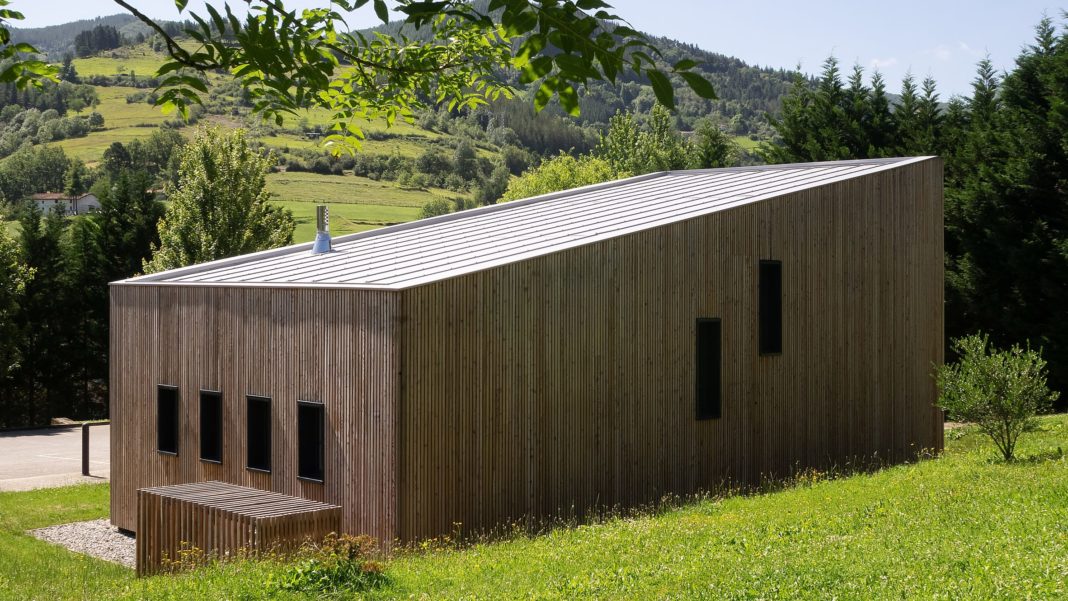Vertical timber battens wrap around this Passivhaus hostel designed by architecture studio Blancodelprim to accommodate pilgrims on the well-known path to Santiago de Compostela.
Architects Ignacio Ibarretxe Pariente and Iñaki del Prim had been commissioned to design the constructing by the municipal council of Zegama – a city located in a valley of the Oria river.
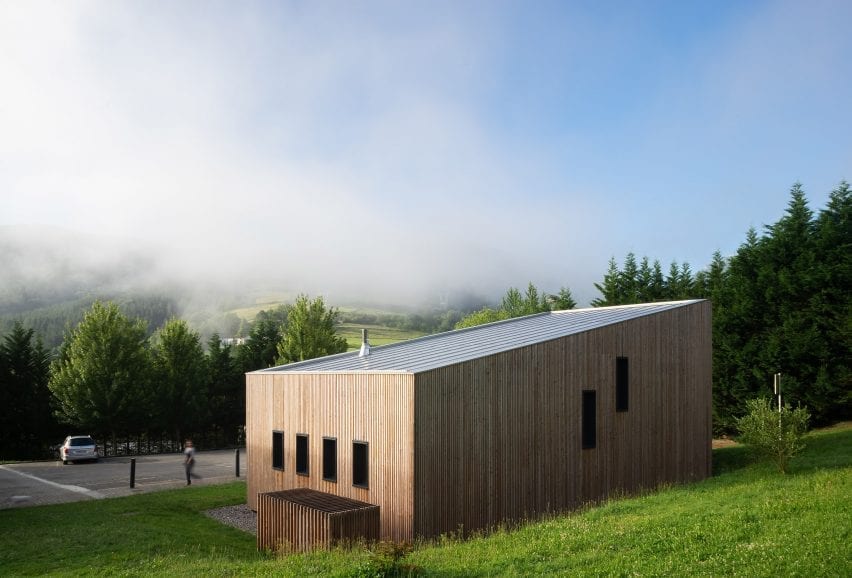
Zegama is positioned on the route of the Camino de Santiago, recognized in English because the Means of St James, which has been an essential Christian pilgrimage route because the Center Ages.
The hostel was designed to accommodate as much as 12 pilgrims in two easy dormitories organized throughout two flooring on the taller finish of the constructing.
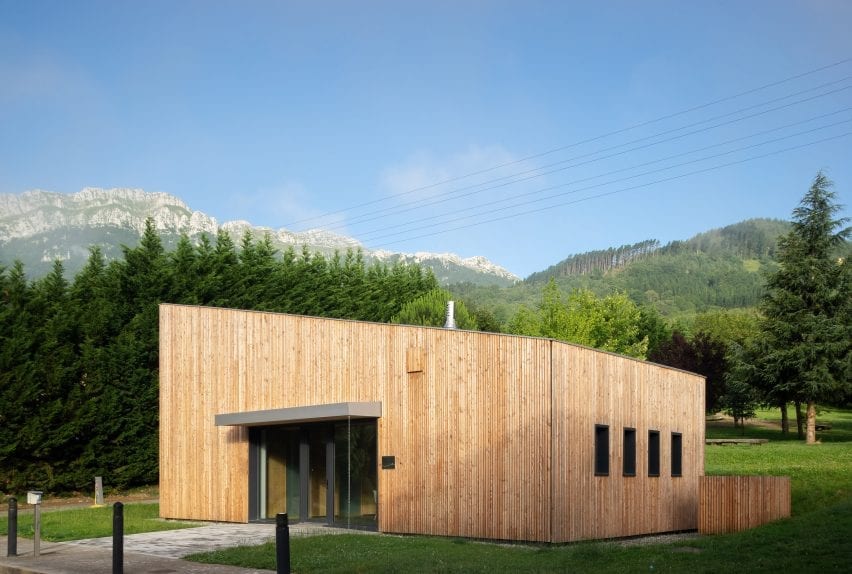
The block was positioned on the entrance to the Aizkorri-Aratz Pure Park and is meant to kind a gateway pavilion that welcomes guests to the park.
The transient from the city’s municipal administration laid out two particular standards that the hostel constructing wanted to fulfil.
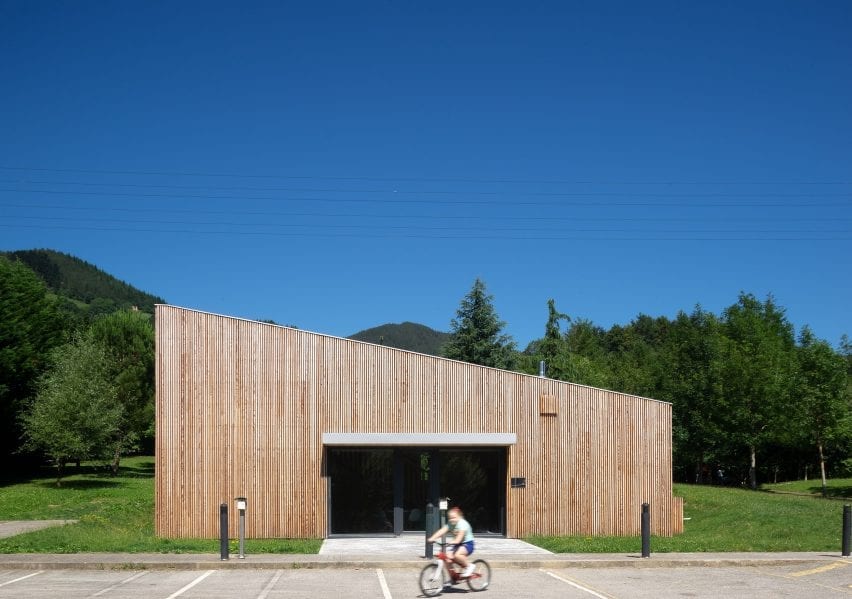
“The constructing needed to be Passivhaus licensed as a assure of town council’s dedication to sustainability and the standard of municipal investments,” stated the architects.
“Additionally, the hostel was to be positioned on a plot of land subsequent to the native Wooden Museum, so it needed to be constructed with domestically sourced radiata pine wooden.”
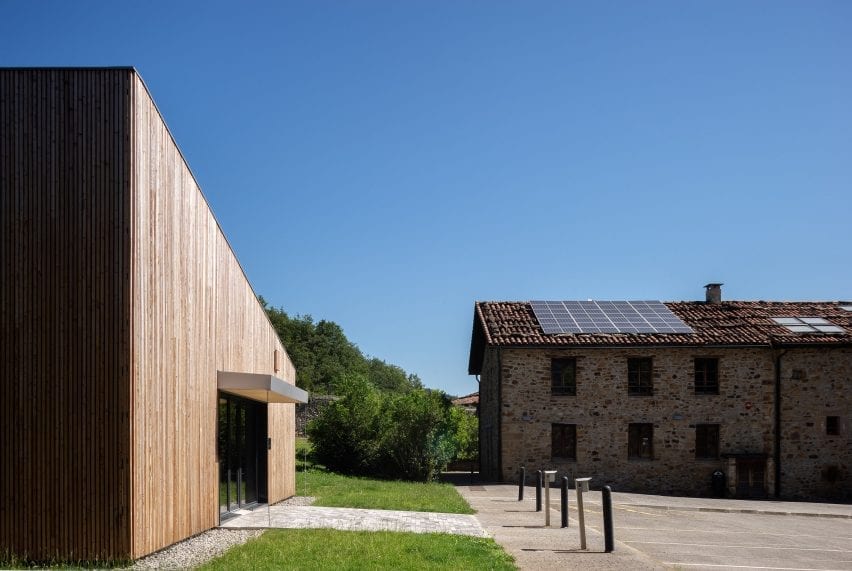
Pamplona-based studio Blancodelprim specialises in creating buildings that meet the low-energy standards required for Passivhaus certification.
Since 2005, the follow has targeted on utilizing wood constructions and framework methods for its buildings, making it well-suited for the hostel undertaking.Related storyAixopluc completes cork and cross-laminated timber extension to traditional Catalan house
The architects designed the hostel to be constructed utilizing a prefabricated construction comprising cross-laminated timber panels created from domestically sourced wooden.
Wooden was additionally used to create the exterior cladding, in addition to for the constructing’s substructure, insulation and inner finishes.
The constructing is fastidiously positioned on the positioning to optimise alternatives for passive local weather management, stopping direct daylight from reaching the inside while permitting the north aspect to offer cooling air flow at night time.
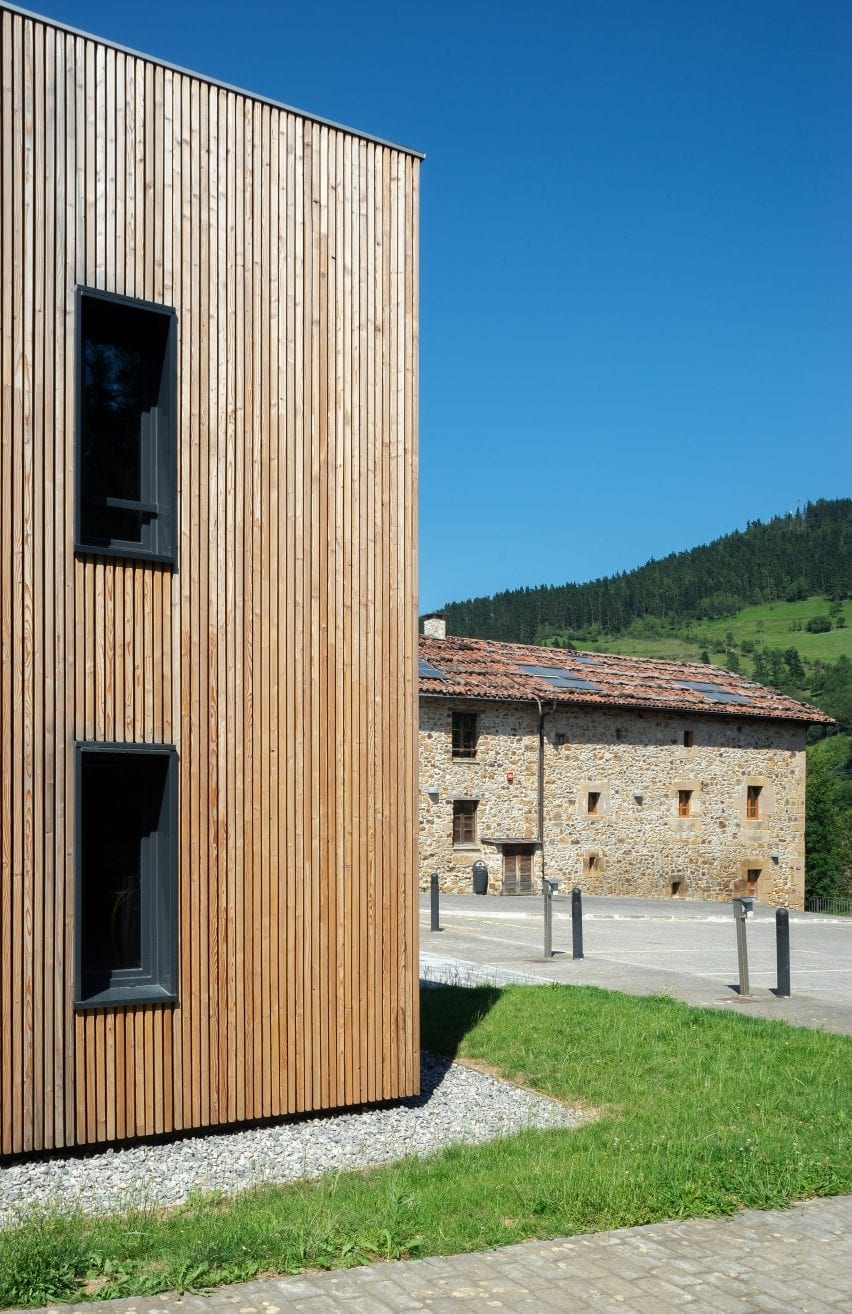
“Because of this positioning, and the compactness of the constructing, it was potential to rearrange the home windows within the southwest orientation, each in measurement and depth, in order that no exterior shading was required,” the architects defined.
“The suitable place of a set eave within the southeast orientation ensures passive safety in opposition to potential overheating in summer season.”
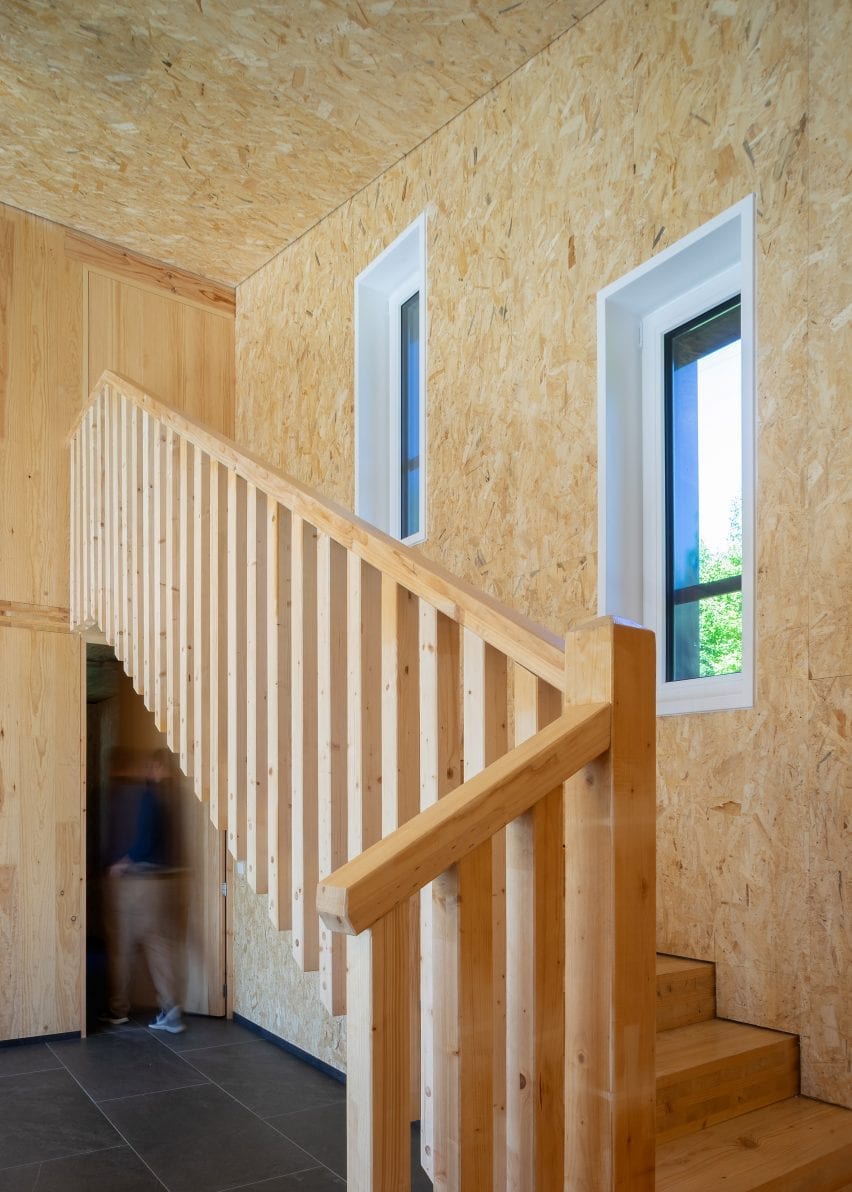
Internally, the hostel options an open dwelling and eating area at its centre, with an adjoining kitchen and washing space positioned at one finish. Two bathrooms are organized on both aspect of the kitchen.
On the other aspect of the central area from the kitchen are two communal dormitories with six bunk beds in every room. The higher dormitory is accessed utilizing a timber staircase that extends alongside the again wall.
A easy materials palette of darkish flooring tiles, uncovered wooden and chipboard panels offers the area a heat and welcoming but practical aesthetic.
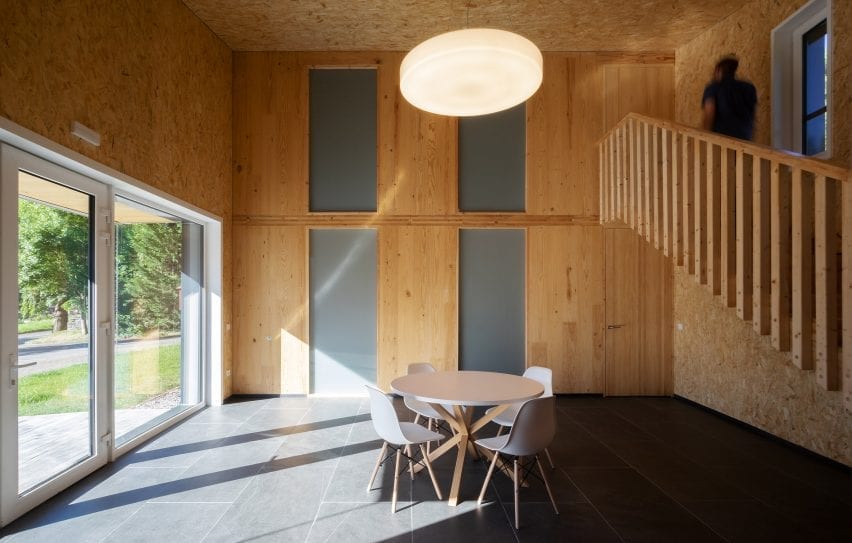
Elsewhere in Spain, Aixopluc created an extension comprised of several sheds and porches surrounding an old house within the metropolis of Reus that makes use of low-cost and light-weight constructing supplies.
Whereas Eduard Balcells, Ignasi Rius and Daniel Tigges constructed a wood-clad concrete kindergarten as a part of a six construction kindergarten organized like a small village in Bellaterra.
Pictures is by Jorge Allende.



